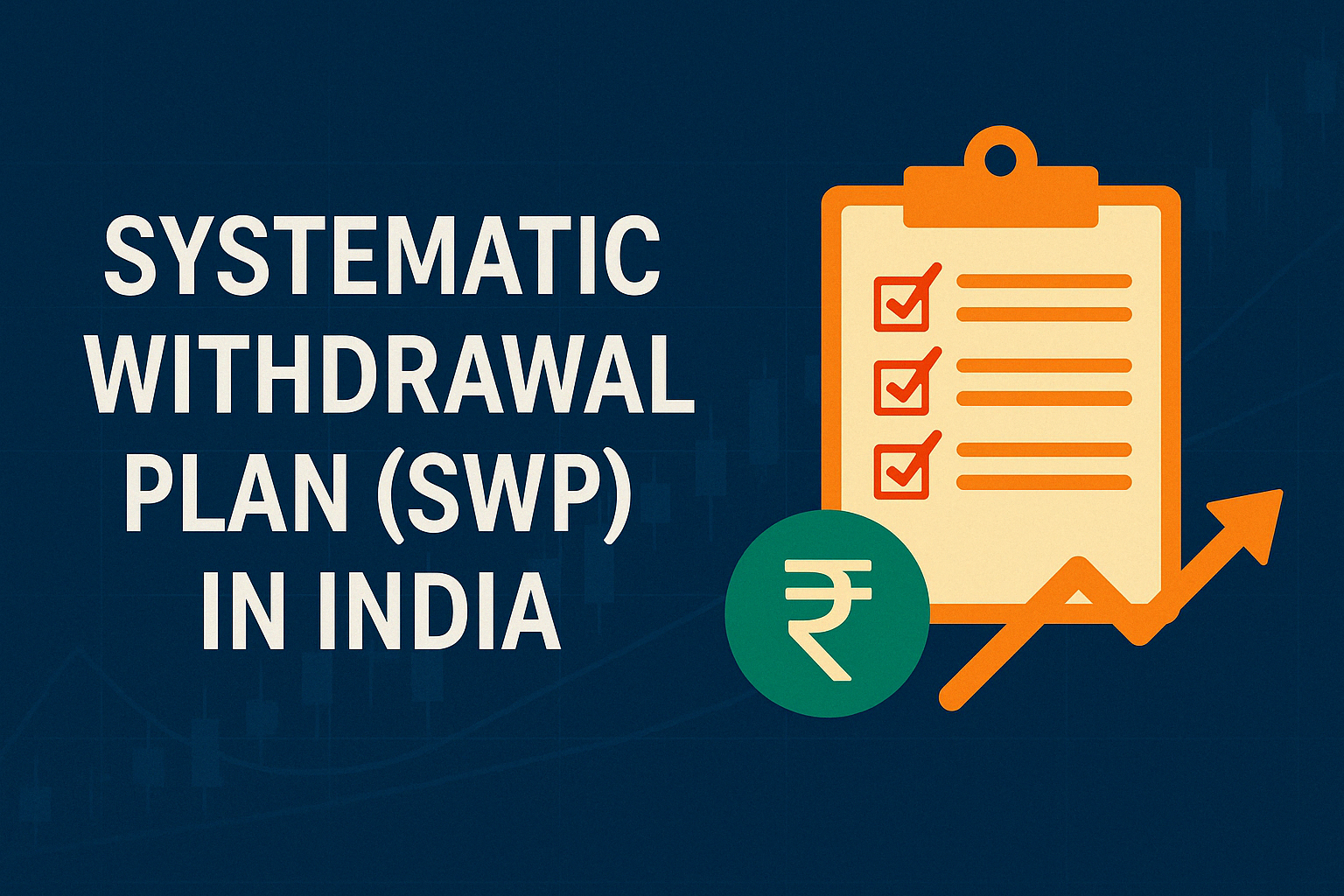SIP – Systematic Investment Plan Explained and Benefits

When it comes to building wealth in a disciplined, stress-free, and goal-oriented way, Systematic Investment Plan, or SIP, is a buzzword that every Indian investor must know. Whether you’re a first-time investor or someone planning to diversify your portfolio, SIP offers an accessible route to create long-term financial security without needing to time the market.
But what exactly is SIP? How does it work? And why do millions of Indians trust SIPs over traditional saving options?
Let’s break it down.
What is a Systematic Investment Plan (SIP)?
A Systematic Investment Plan (SIP) is a method of investing a fixed amount in mutual funds at regular intervals—monthly, quarterly, or even weekly. Instead of putting in a lump sum, SIP allows you to invest small amounts over time.
It’s like a recurring deposit, but instead of earning fixed interest, your money is invested in mutual funds, potentially generating higher returns over the long run.
In short: SIP = Small Steps → Big Goals.
💡 How Does SIP Work?
Think of SIP as a smart money habit.
When you start a systematic investment plan, here’s what happens:
- Automated Deductions: A fixed amount is auto-debited from your bank account.
- Units Allocation: That amount buys mutual fund units based on the prevailing Net Asset Value (NAV).
- Compounding Power: Over time, the returns are reinvested, helping your wealth grow exponentially.
- Rupee Cost Averaging: Since you invest regularly, you buy more units when the market is low and fewer when it’s high—reducing the impact of volatility.
Key Benefits of Systematic Investment Plan
Here’s why SIPs are a favorite among Indian investors:
1. Disciplined Investing
SIP makes investing a habit. Once set up, it runs automatically, promoting regular savings and financial discipline.
2. Affordable for Everyone
You can start a SIP with as little as ₹100 or ₹500 per month. No need for lakhs in your account—just consistency.
3. No Need to Time the Market
SIPs remove the emotional burden of investing. Whether the market is high or low, your investment continues, averaging out costs over time.
4. Power of Compounding
The earlier you start, the more your money compounds. A small amount invested regularly can snowball into a large corpus over 10–15 years.
💰 Example: Investing ₹5,000 per month for 15 years at an average 12% return can grow your investment to over ₹25 lakh!
5. Flexible and Transparent
You can increase your SIP amount, pause it, or stop it anytime—without any penalties. Plus, you can track performance online 24/7.
6. Helps Achieve Life Goals
SIPs are goal-based. Want to save for your child’s education, dream home, or retirement? Allocate SIPs for each goal and watch your dreams turn real.
Types of Mutual Funds for SIP in India
You can start a systematic investment plan in any of the following mutual fund categories:
| Mutual Fund Type | Suitable For | Risk Level |
| Equity Funds | Long-term wealth creation | High |
| Debt Funds | Stable income & low risk | Low to Medium |
| Hybrid Funds | Balanced growth & safety | Medium |
| ELSS (Tax Saving SIPs) | Tax benefits under 80C | Medium to High |
SIP vs Lump Sum – What’s Better?
| Feature | SIP | Lump Sum |
| Investment Style | Regular & periodic | One-time investment |
| Market Timing | Not required | Timing is crucial |
| Risk | Lower risk via rupee cost averaging | Higher risk if mistimed |
| Suitable For | Salaried, beginners | Experienced investors with surplus |
For most retail investors in India, Systematic Investment Plans offer better long-term consistency and reduce the chances of emotional decision-making.
How to Start SIP in India?
- Pick a Goal – Define what you’re saving for.
- Choose a Mutual Fund – Equity, debt, hybrid, or ELSS.
- KYC Compliance – Complete e-KYC with Aadhaar & PAN.
- Set Monthly SIP Amount – Based on your goal & budget.
- Use a Platform – Start through your bank, broker, or apps like Groww, Zerodha, Kuvera, Paytm Money, etc.
Tip: Use SIP calculators available online to plan your investment based on your desired corpus.
Best Practices for SIP Success
- Start Early: The sooner you begin, the bigger your wealth will grow.
- Stay Consistent: Don’t pause SIPs during market dips—it defeats the purpose.
- Review Periodically: Check performance once every 6 months, but avoid overreacting.
- Increase SIP with Income: Gradually hike your SIPs when your salary increases.
Why SIP is the Smart Indian Way to Invest?
In a country where financial literacy is growing and traditional savings like FDs are no longer enough, a systematic investment plan is the modern, accessible way to secure your financial future.
Whether you’re a student, a working professional, or planning retirement—SIP helps you create wealth one step at a time.
“Don’t wait to invest. Invest and then wait.”
This is the golden mantra of SIP.
FAQ: Systematic Investment Plan in India
Q1. Is SIP safe?
Yes, SIPs in mutual funds are regulated by SEBI. While returns aren’t guaranteed, it’s safer when done long-term in diversified funds.
Q2. Can I stop or change my SIP?
Yes, SIPs are flexible. You can pause, stop, or modify them anytime via your mutual fund platform.
Q3. Is SIP good for tax saving?
Yes, SIP in ELSS mutual funds offers tax deduction benefits up to ₹1.5 lakh under Section 80C.
Q4. Which SIP is best for beginners in India?
Balanced or hybrid mutual funds are good starting points for those with moderate risk appetite.
If you’re ready to invest smarter, start your SIP today—and make your money work harder for your future.










